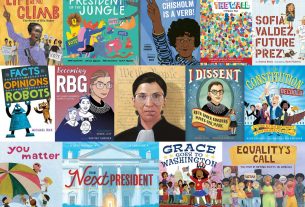E. O. Wilson knows a lot about ants. A biologist and naturalist who teaches at Harvard, Wilson has a couple Pulitzers under his belt and has written a lot of books on a variety of topics, including sociobiology and “consilience”—the combining of different types of knowledge, like science and the humanities. His latest book, Anthill, does just that: it’s Wilson’s first novel, but with a healthy dose of science.
Drawing on his own background, Wilson introduces us to Raphael “Raff” Cody, a boy growing up in a small town near Mobile, Alabama. Raff is a born naturalist and loves hanging out at nearby Lake Nokobee, one of the last stands of old-growth longleaf pine. He studies biology in college, but when he hears that the land around Nokobee is likely to be bought up and developed, he goes to law school (Harvard, naturally) with the goal of preserving the wilderness he loved as a child. The narrator is a professor at Florida State University who I imagine is also patterned after Wilson himself, to some degree.
The middle section of the book is Raff’s senior thesis, titled The Anthill Chronicles, and it tells the story of a few colonies of ants living at the Lake Nokobee trailhead. It’s a fascinating account of the way these particular ants function as a society, and the rise and fall of an empire. But Wilson also uses it as a not-so-subtle parallel to the human world:
Every species walks a tightrope … Launched upon it, there is only one way to keep going, and a thousand ways to fall off.
Wilson doesn’t engage in any anthropomorphism of the ants, letting them behave as ants; but in describing their society (and in particular one mutated colony which takes over an entire region on the lake shore) it’s hard to miss the connections to Raff’s Uncle Cyrus and his vision for a Mobile-Pensacola megalopolis.
Wired had a brief interview with Wilson in March, but didn’t get into much detail about the book itself. I just finished reading Antill and enjoyed it but with some caveats. I did get into the story of Raff and his upbringing, the influences of his family and study of nature which eventually produced an environmental lawyer. However, I found Wilson’s writing to be in need of editing. When I read a novel, I want to be immersed in the story, almost unaware of the writing itself. Or, I want to find myself marveling at the beauty of the language, savoring the author’s craftsmanship in creating the perfect sentence. With Anthill, I was constantly aware of the writing, because it was clunky and plain.
I also felt that there were large sections devoted to what was essentially background information: the story of Raff’s parents, for instance, was somewhat interesting but not entirely necessary to the story. But the expected legal battle to save Nokobee? It seemed like the whole book was building up to this major conflict, but then after laying out his plan we skip ahead to “six months later,” after his victory. I mean, sure, I expected Raff to win the battle, but it might have been nice to see how the fight actually went. There’s also an unexpected sequence involving some shady folks from the “Christian hard right” that seems a bit like Wilson’s opinions of religion forcing their way into the story. It feels like a chapter borrowed from a crime thriller, out of place in the easy pace of the rest of the book.
My favorite part was The Anthill Chronicles, which is a kind of novella by itself. It reminded me of a book I read years ago, Empire of the Ants by Bernard Werber, except that Wilson’s version is scientifically accurate and still makes for a good read. Raff’s story was also engaging and drew me in; I was mostly disappointed in the writing itself. Now, I do want to stress that since my copy was an advance reading copy, it may have been heavily edited before final publication. The excerpt that ran in the New Yorker (which comes from the Anthill Chronicles section of the book) flows better than the copy I have and has superfluous sections snipped out. If the rest of the book got the same sort of treatment, I imagine it will be a much better read.
I think it would be great to see more real science tied into fiction (I think I’d heard the term “scientifiction” once, to separate it from “science fiction”) but it may be a better idea to team up scientists with fiction writers, so you get the best of both worlds. Check out the excerpt from the New Yorker and you’ll have a pretty good idea of at least that section of the book.
Anthill was released earlier this month by W. W. Norton & Company.
Wired: The close-up look at life in an ant colony is terrific—and realistic.
Tired: E. O. Wilson probably makes a better science writer than a fiction writer.
Disclosure: W. W. Norton provided the advance reading copy for review purposes.


